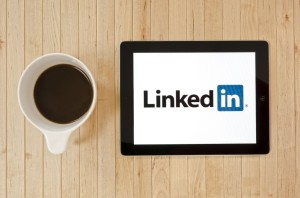Your #Career : These Are The Smartest Decisions I’ve Made For My Career…From #SwitchingCareers to Finding Ways to Add Value to their #Employers , Three Writers from The Motley Fool Shared some of the Biggest Lessons they’ve Learned During their Working Lives.
A surprisingly high number of Americans are unhappy with their work; some estimates are that more than half of us don’t like our jobs. And while there are always things we have no control over, none of us should feel completely powerless. There are almost certainly things you can do to put yourself in a better situation.
Not sure where to start? Three Motley Fool writers who have lived it offer their experiences below, describing what they say was the best thing they each did for their career, ranging from the bold (completely changing jobs and industries) to the nuanced (taking action to be a more valuable employee). Keep reading below for valuable insight that could help you figure out how to improve your career.
Related:I Changed Careers Repeatedly In My 20s–Here’s What It Taught Me
Like this Article ? Share It ! You now can easily enjoy/follow/share Today our Award Winning Articles/Blogs with Now Over 2.5 Million Growing Participates Worldwide in our various Social Media formats below:
FSC LinkedIn Network: www.linkedin.com/in/fscnetwork
Facebook: http://www.facebook.com/pages/First-Sun-Consulting-LLC-Outplacement-Services/213542315355343?sk=wall
Google+: https://plus.google.com/115673713231115398101/posts?hl=en
Twitter: Follow us @ firstsunllc
Question: Want the ‘the best/current articles/blogs on the web’ on Job Search, Resume, Advancing/Changing your Career, or simply Managing People?
Answer: Simply go to our FSC Career Blog below & type(#career, #leadership, #life) in Blog Search: https://www.firstsun.com/fsc-career-blog/
What Skill Sets do You have to be ‘Sharpened’ ?
Continue of article:
I TOOK A BIG CHANCE
In the early years of my working life, my goal was to be a professor or teacher. I started a PhD program, and after a year decided that a PhD and college teaching weren’t for me. I switched gears and became a high school teacher instead. I might have stuck with that, but budget cuts forced me to look for other work, and I ended up getting an MBA, with the goal of switching into a lucrative and satisfying career.
The MBA led to better-paying work, but it wasn’t terribly satisfying. I was soon presented with an intriguing opportunity, though–working as a writer and editor for a very new and small company called The Motley Fool. The prospect of it was exciting, as I’d always liked writing, and the fare I would produce for the Fool would even be educational, scratching my teaching itch. One big downside, however, was the pay–along with the fact that it was a small startup and wouldn’t necessarily be around in five or 10 years.
I took the chance and have not regretted it. Yes, I started out earning much less than I had been, but the company grew and grew, and within a number of years, I was earning more than many writers make. Not every job seeker can afford to take a big pay cut, but if you’re presented with an exciting opportunitythat has one or two drawbacks, give it some serious consideration. If I’d just stuck with typical MBA-type jobs, I don’t think I’d be enjoying my career as much.—Selena Maranjian
I CHANGED MY CAREER COMPLETELY
I landed a job at a hedge fund straight out of college, and while the pay was great, the environment was not. I hated being surrounded by greedy traders who were only interested in making money, and toxic coworkers who were constantly rude to me. But I stayed on for quite some time, not just for the money, but because it was something impressive to put on my resume.
Eventually, however, my unhappiness at work began to impact other aspects of my life, and so with my then-boyfriend/now-husband’s encouragement, I gave my two weeks’ notice to pursue a writing career. It was a risky move, to say the least. Writing isn’t exactly known to be a lucrative profession, and giving up a steady paycheck and health benefits for the unknowns of the gig economy was easier said than done. But once I started writing professionally, I became more content, even though it did mean a pay cut and some lifestyle changes as a result.
So there you have it: The best thing I ever did for my career was to change it completely. I now write full-time, and I’ve never been happier.—Maurie Backman
I MADE MYSELF MORE VALUABLE
In a prior career, I struggled for some time with the fact that I wasn’t particularly happy with my job. And I wasn’t unique: As Maurie wrote last year, more than half of us are dissatisfied with our work. And this dissatisfaction can be due to a litany of things, including pay, benefits, paid time off, opportunity–or lack thereof–for advancement, and satisfaction with the work itself.
For me, it was primarily a lack of satisfaction with the work, and I was letting it affect my job performance. That was further limiting my ability to improve my situation. I wasn’t exactly putting myself at risk of getting fired, but I wasn’t doing myself any favors, either–especially if I wanted to get out of that job and into something that was more rewarding.
So I put on my big-boy pants and started acting like a professional. This included sitting down and making a list of the pros and cons of my job, as well as what steps I could take to improve my situation. I realized that if I didn’t commit myself to being a better employee and partner, I was giving my employer little reason to consider me for career advancement. I also realized that I needed to gain certain skills if I wanted to move up.
By committing myself to the job and investing in my skills, I improved my work performance and earned a promotion into a role that was more fulfilling (and also financially rewarding). While I would eventually leave that industry to pursue a writing career (following Maurie’s suggestion above), my decision and actions to improve my skills and performance paid off in spades for years.—Jason Hall
FastCompany.com | April 25, 2018 | BY THE MOTLEY FOOL 4 MINUTE READ










